How much do you know about the following the right dog routine for your pup? We're here to help.
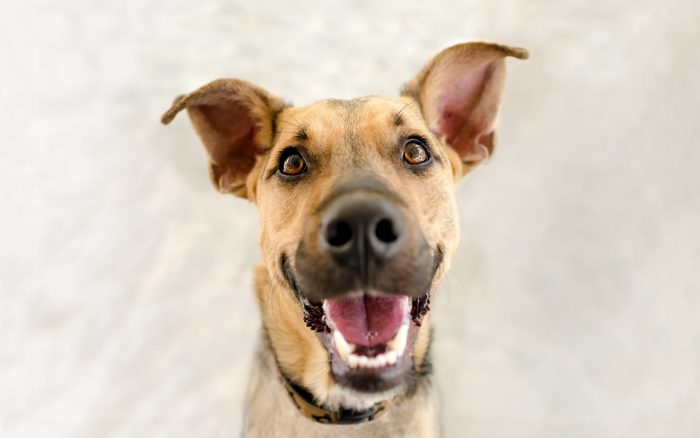
10 Things Your Dog Should Be Doing Every Single Day

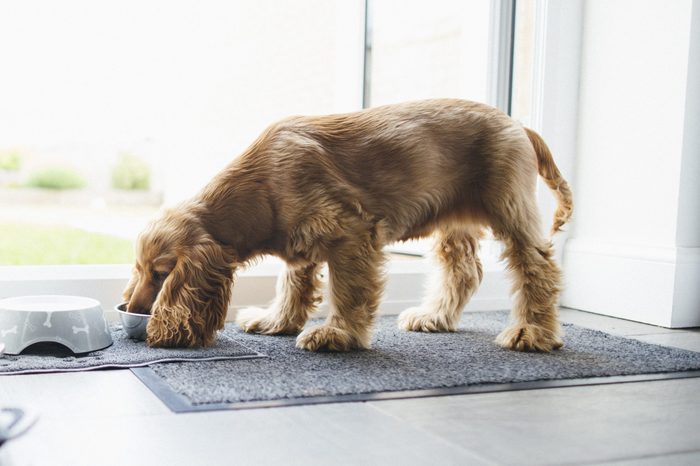
Eating their food
You know your pup needs to eat every day, but determining exactly how much food to give is a bit more involved. While most high-quality dog food packages give suggested serving sizes, there are some additional factors—including breed, size, body type, life stage, activity level and environmental conditions—to take into consideration before filling your dog’s bowl.
“For example, puppies should be fed more frequently than adult pets, as dogs tend to need (and want) to eat less often as they get older,” says Dr. Winch, who works for Banfield Pet Hospital in Vancouver, Washington. Watch their activity level, too. Dogs that sleep most of the day need less food than a working farm dog. “Consult with your veterinarian, who can advise on the best diet for your pet that meets their individual nutritional requirements and is appropriate for their life stage.”
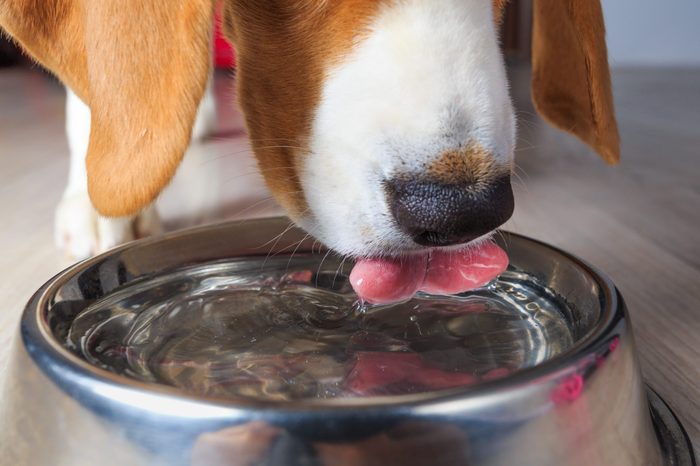
Drinking water
Just like humans, dogs need fresh water every single day. And they can’t get it themselves, so make sure you keep their bowl clean and full. “As a general rule of thumb, dogs should consume one ounce of water per pound of body weight per day, and additional water intake may be required on excessively hot days or after excessive exercise,” says Devereaux, who is the chief nutrition officer and wellness expert for Bow Wow Labs.
If you and your dog regularly take long walks where water availability is limited, bring water and invest in an inexpensive travel bowl so your pet stays hydrated. At home, check your dog’s bowl throughout the day to track their consumption. “If you find that your pet is drinking more [or less] than usual, having them examined by your veterinarian is recommended as this can be a sign of underlying conditions,” Dr. Winch says.
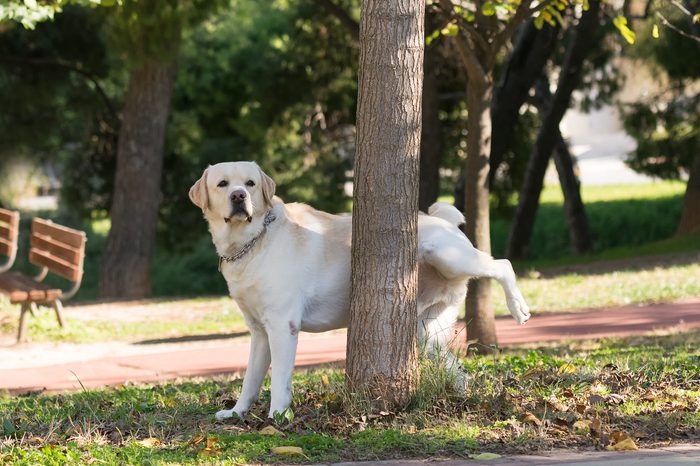
Going pee
Different dogs have different habits, but in general they should urinate about three to five times a day. The number of times they have to go often has to do with the type of food they eat and how much water they drink. Drinking lots of water makes sense, but why would the food matter? Dr. Winch says dog foods that are higher in salt and additives can stimulate your dog to drink more, which of course makes them pee more.
“Since all dogs will have different habits for urination, it’s helpful for a pet owner to know what is considered normal behavior for the individual pet, and to speak with their veterinarian if they see any changes,” Dr. Winch advises. In addition to the output, watch for potential signs of illness or discomfort like difficulty urinating, blood in the urine or uncharacteristic accidents in the house. If you see anything out of the ordinary, talk to your vet.
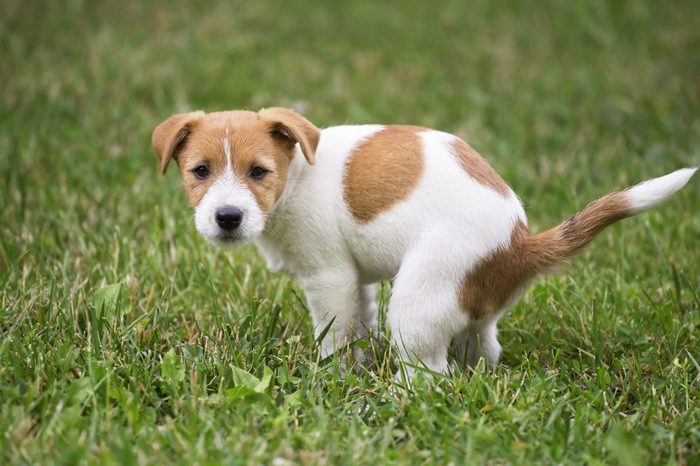
Going poop
Most dogs poop once or twice a day, often doing that cute thing where they spin around first. But did you know that the type of food you feed them can determine how frequently they go? Devereaux says that higher-quality foods produce less waste, since it’s easier for your dog to absorb the nutrients in the food. So if your dog is pooping too much, it could be the result of poor-quality food.
“In general, the number of times your dog poops should remain relatively constant, as should the consistency of their stool,” says Dr. Winch. “If you are seeing a sudden increase in defecation, a change in the consistency or if your pet goes longer than 24 hours without defecating or is showing signs of straining, then an examination by your veterinarian is recommended.”
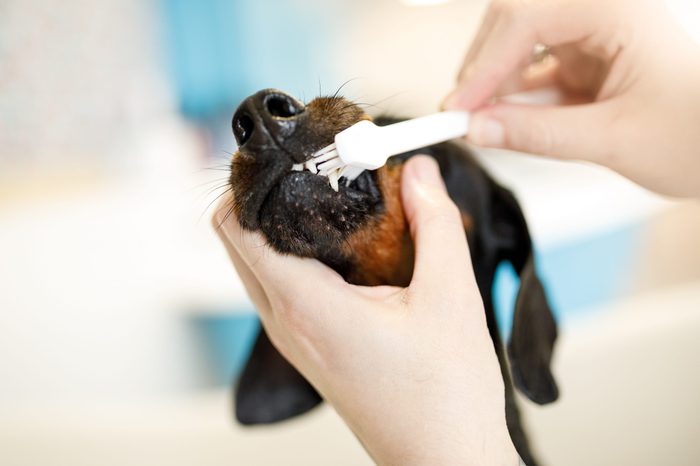
Brushing their teeth
Oral health often gets side-stepped when it comes to our fur companions, but adding teeth cleaning to your dog routine is one of the easiest things you can do to promote their overall body health.
“Without a routine dental care regimen, dogs run the risk of developing periodontal (gum) disease, which often causes gum infection, tooth pain and loss, and malnourishment,” says Dr. Bernal, who works for Wellness Pet Company. It’s not just your dog’s teeth, either. “Periodontal disease also has the potential to impact heart, liver and kidney function down the line, so daily care is crucial for overall health from tooth to tail.”
If you’re dreading the idea of trying to brush your dog’s teeth every day, don’t worry. While it’s a great idea to acclimate puppies to brushing, if that ship has sailed you can give your dog daily dental chews that break down plaque, tartar and bad bacteria. But do it daily, because it only takes 24 hours for that gunk to resurface.
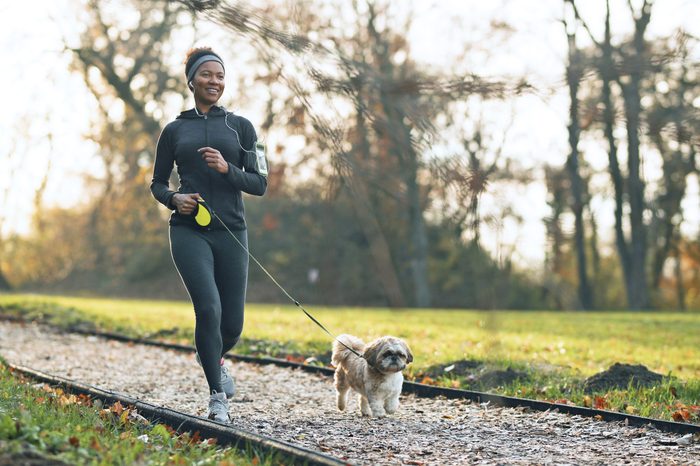
Getting physical exercise
At a minimum, dogs should get 30 to 45 minutes of exercise every single day, Devereaux says. You don’t have to do it all at once, though. “If you have an older dog with decreased stamina, an overweight dog trying to lose weight or a large breed puppy still in its growing stage, it is best to break down the period of exercise into smaller intervals several times per day,” she says.
Daily exercise helps your dog’s heart and mental health, and keeps weight gain down, so work a walk or two into your dog routine. Dr. Winch says that excess weight and obesity in dogs is at epidemic proportions, and these conditions are linked to other dog illnesses, including arthritis, diabetes and heart disease. Maintaining a healthy weight is all about living a healthy life.
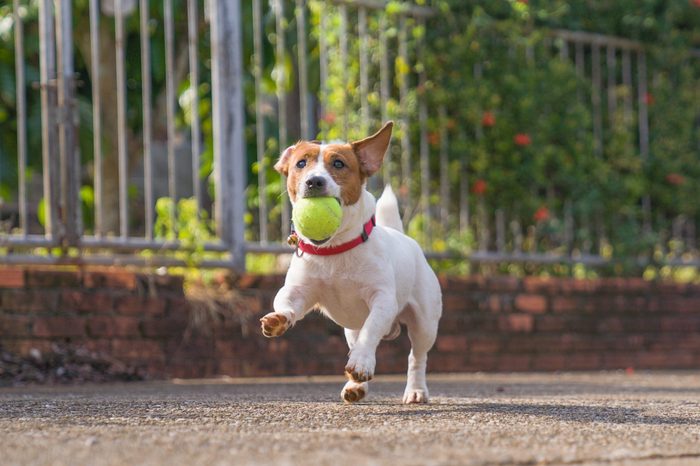
Enjoying mental stimulation
You know dogs need exercise, but they should also get at least 20 to 30 minutes of mental stimulation per day. A lack of mentally engaging activities can lead to depression, weight gain and even destructive behaviors such as ruining property, excessive barking or whimpering.
“While all dogs require some form of daily attention, the amount required can vary between dogs,” Dr. Winch says. “Training classes and daily training exercises are great ways to strengthen bonds with our pets, as well as encourage good behaviors.” Playing fetch, using mentally stimulating toys and simply teaching them some dog tricks are great options, too.
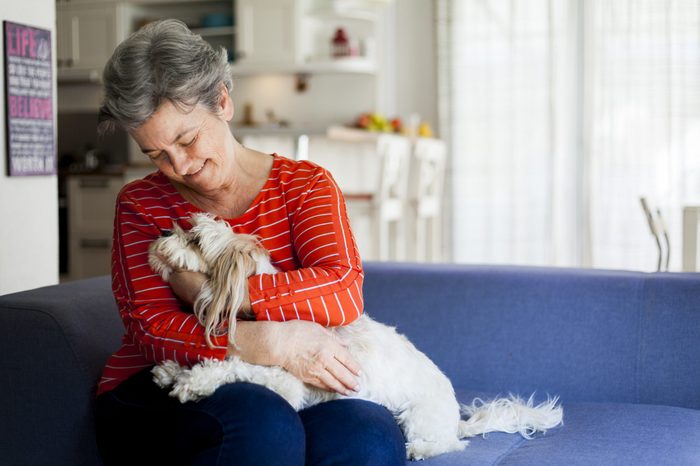
Cuddling with you
In addition to good old exercise and brain-engaging activities, your dog benefits from consistent cuddles. “Daily snuggles with pets are a very important way to bond with our animals, and, as long as the animal is open to receive them, the more the merrier,” Devereaux says, though she says to make sure your dog gets some alone time, too. “If you begin to pet or snuggle your pooch and they get up and walk away, do not restrain them and do not chase them. Let them have their space and try again at a later time.”
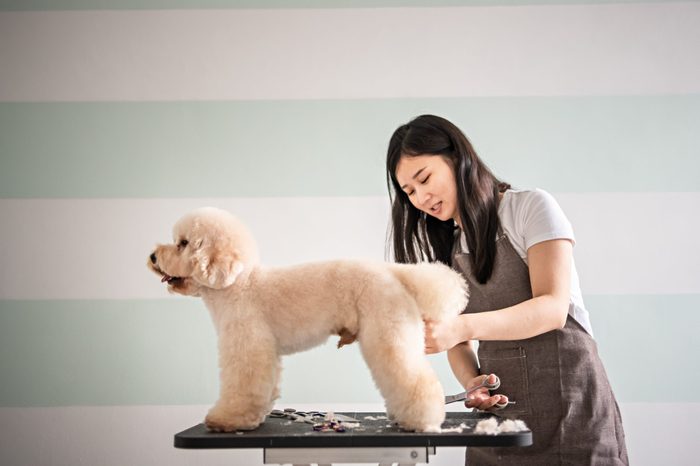
Grooming their fur
Dogs won’t do this one themselves, so grooming your dog daily is a great way to bond and to keep up on their general physical health. “A good brushing reduces shedding, improves circulation, can prevent painful matting and may help you detect unhealthy parasites like ticks and fleas that can infest your home,” says Dr. Winch. Brushing also distributes oil away from their skin, helps remove knots and dirt and can reduce odor.
The type of brush matters, Dr. Winch says. “Make sure you’re using a high-quality brush that won’t hurt your dog’s sensitive skin.” Look for a brush that’s made for your dog’s fur type and length, and be gentle. Dogs generally enjoy the attention, but you don’t want to hurt them with harsh strokes.
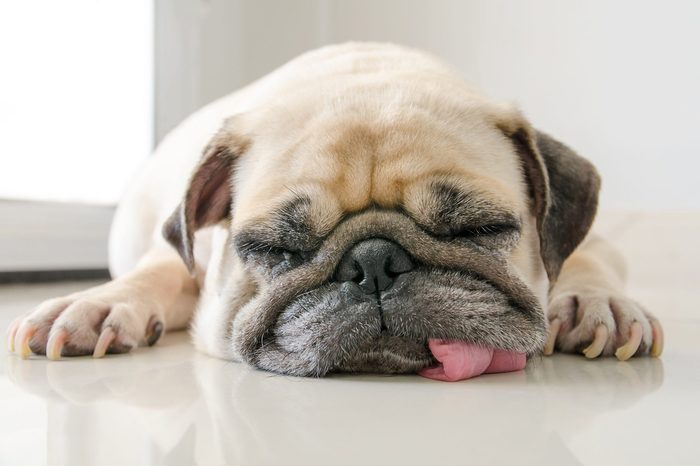
Sleeping soundly
This isn’t a well-studied topic, Dr. Winch says, but anecdotal evidence suggests that dog sleep cycles depend on their owners, and are impacted by similar environmental factors that affect human sleep. Healthy adult dogs are generally awake about seven to eight hours during the day and about five hours during the night, according to Dr. Winch. Puppies tend to need more sleep—upwards of 18 hours per day—and may sleep for even longer stretches immediately preceding a growth period.
“In general, it is always important to observe your dog’s daily habits and identify what they are,” Devereaux says. “If you see that your dog who normally sleeps 12 to 14 hours a day is suddenly sleeping for much longer periods of time—and it’s not because you completed a four-hour hike with them—it may be a good idea to schedule a health visit with your veterinarian.”
About the experts
|
Why trust us
At Reader’s Digest, we’re committed to producing high-quality content by writers with expertise and experience in their field in consultation with relevant, qualified experts. We rely on reputable primary sources, including government and professional organizations and academic institutions as well as our writers’ personal experiences where appropriate. We verify all facts and data, back them with credible sourcing and revisit them over time to ensure they remain accurate and up to date. Read more about our team, our contributors and our editorial policies.
Sources:
- Carl Winch, DVM, senior manager of veterinary relations at Banfield Pet Hospital
- Johnna Devereaux, clinical pet nutritionist and chief nutrition officer for Bow Wow Labs
- Danielle Bernal, DVM, senior director of global marketing at Wellness Pet Company
- FDA: “Pet Food”















